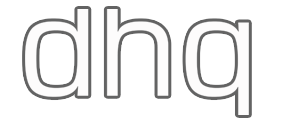Something Called “Digital Humanities”
Wendell Piez, Mulberry Technologies, Inc.
Abstract
[en]
Are the Digital Humanities only a concession to fashion, and as such a sign of decline? A
professor of English, off the cuff and online, suggests as much, but there is reason to
wonder.
The Technical Evolution of Vannevar Bush’s Memex Belinda Barnet, Swinburne University of Technology, Melbourne
Abstract
[en]
This article describes the evolution of the design of Vannevar Bush's Memex, tracing
its roots in Bush's earlier work with analog computing machines, and his
understanding of the technique of associative memory. It argues that Memex was the
product of a particular engineering culture, and that the machines that preceded
Memex — the Differential Analyzer and the Selector in particular — helped engender
this culture, and the discourse of analogue computing itself.
The Humanities HyperMedia Centre @ Acadia University: An Invitation to Think About Higher
EducationRichard Cunningham, Acadia University; David Duke, Acadia University; John Eustace, Acadia University; Anna Galway; Erin Patterson, Acadia University
Abstract
[en]
With Humanities Computing and New Media identified as emerging fields of significant strength,
it is time for well-funded and fully supported programs in Digital Humanities to be described,
developed, and implemented in the university. This article is a description of an attempt to
build such a program from the ground up, rather than from the top down. That is, the authors and
others created a series of courses, both multi-disciplinary and disciplinary, a database, and a
core course designed to make digital humanities a reality, even without having it certified as a
program by the governing bodies of their faculty and university. In this article, the database
and core course are described in some detail in order to offer what the authors believe to be
worthwhile ideas to others who would advance the cause of digital humanities. The article
concludes with some concrete suggestions on how to ensure support, to make faculty participation
possible, to measure success, and to motivate students.
As You Can See: Applying Visual Collaborative Filtering to Works of ArtGerhard Jan Nauta, Leiden University
Abstract
[en]
Art historically relevant visual knowledge can be deconstructed and the resulting
components of this visual knowledge — visual discernments — lend themselves to be
socially negotiated. Individual visual experts (like connoisseurs) do not share some
grand and undividable cognitive cataloguing system; they are attentive to piecemeal
visual discernments and the patterns in which these occur in reality. In conventional
scholarly communication sophisticated tools to discuss perceptual patterns are
lacking. This paper not only proposes a theoretical model of visual knowledge
accumulation, but also describes a practical implementation, Art.Similarities, which is designed as a prototype of such a
sophisticated tool. Using a custom-made interface it records visual behavior: the
non-verbally expressed visual similarity judgments of distributed individuals. Users
can be assigned to groups according to the qualities of their judgments. These
qualities may be distilled from emerging similarity patterns. The implications of
individual judgments in different user groups may vary considerably. Emerging
patterns can be assessed both according to human analysis and statistical procedures.
Most studies on art evaluation are attentive to either the characteristics of works,
or the characteristics of observers. In this study both are considered as
interdependent entities consistently.
Review: The Electronic Literature Collection Volume I: A New Media
Primer
Mark C. Marino, University of Southern California
Abstract
[en]
This is a review of The Electronic Literature Collection Volume I: A New Media
Primer.
Conference Review: Reading Digital Literature at Brown
University, October 4-7, 2007.Patricia Tomaszek, Siegen University
Abstract
[en]
This is a review of the conference, Reading Digital Literature at Brown University,
organized by Roberto Simanowski (Brown University and Dichtung
Digital) October 4-7, 2007.



